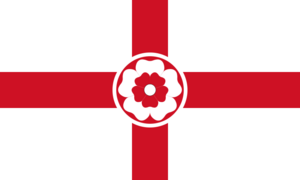Devolved English parliament facts for kids
A devolved English parliament is a special idea for England to have its own government, just like Wales, Scotland, and Northern Ireland already do. This proposed parliament would make decisions only for England. It's a big topic in the politics of the UK.
People have different ideas about whether England should have its own parliament. Surveys have shown mixed results on how much public support there is for this idea.
Contents
What is a Devolved English Parliament?
Before 1998, all decisions for the whole United Kingdom were made by the main British Parliament in Westminster. But after 1998, Scotland, Wales, and Northern Ireland got their own parliaments or assemblies. These new bodies started making decisions about things that only affected their own areas.
However, for England, decisions about purely English matters were still made by the entire British Parliament. This meant that Members of Parliament (MPs) from Scotland, Wales, and Northern Ireland could vote on laws that only affected people in England. This situation is sometimes called the "West Lothian question."
Because of this, some people believe England should also have its own parliament. This would give English representatives the power to make decisions just for England.
Why is it a Big Topic?
England has a much larger population than Scotland, Wales, and Northern Ireland combined. This means that most of the MPs in the UK Parliament are from English areas.
However, there have been times when MPs from non-English areas have voted on laws that only affected England. For example, this happened with decisions about hospitals, university top-up fees, and new runways at Heathrow Airport.
Some groups and political parties want England to have its own parliament. These include the English Democrats and the UK Independence Party (UKIP). The Campaign for an English Parliament (CEP) has been working since 1997 to get a public vote on this idea. Even though it's a challenging topic in Westminster, the CEP has helped more people learn about it.
What Do Politicians Think?
Over the years, different political parties and leaders have had various views on an English parliament:
- In 2012, Simon Hughes, a leader of the Liberal Democrats, said he supported the idea.
- When the Conservative and Liberal Democrat parties were in government (2010-2015), they set up the McKay Commission. This group looked into the issue and suggested a system called "English votes for English laws" (EVEL). Under EVEL, laws that only affected England would need to be approved by a majority of MPs representing English areas.
- The Labour Party generally opposed EVEL. They argued it would create two types of MPs in the UK Parliament. Instead, they suggested that England should have regional assemblies, not one single parliament. However, in 2015, Chuka Umunna from the Labour Party suggested that Labour should support a separate English parliament as part of a federal UK.
- The Conservative Party supported EVEL. After winning the 2015 election, they put EVEL into practice. This gave English MPs a "veto" (the power to block) over laws that only affected England. However, EVEL was stopped in July 2021.
Public Opinion on an English Parliament
Surveys have shown different levels of support for an English parliament:
- In the early years after Scotland and Wales got their own parliaments (1999-2004), support in England for an English parliament was quite low, around 16% to 19%.
- By 2007, a poll for BBC Newsnight found that 61% of people in England supported having their own parliament.
- A report in 2010 showed that 29% of people in England supported an English parliament, which was an increase from 17% in 2007.
- A 2014 poll by Cardiff and Edinburgh universities found that 54% of English people agreed with having a devolved parliament.
- More recently, in October 2021, a poll by Public First found that 62% of English voters would vote for an English Parliament. This poll also showed that 64% of all English voters thought laws that only apply in England should be made by MPs elected in England.
Campaigning Groups
Several groups are actively working to promote the idea of a devolved English parliament:
- The Campaign for an English Parliament
- The English Constitutional Convention
- The English Democrats political party
Even though many people support the idea of an English parliament, the political parties that campaign for it often don't get a lot of votes in general elections. For example, in the 2010 United Kingdom general election, the English Democrats received only a small percentage of the votes in England.
See also
 In Spanish: Devolución inglesa para niños
In Spanish: Devolución inglesa para niños
 | Victor J. Glover |
 | Yvonne Cagle |
 | Jeanette Epps |
 | Bernard A. Harris Jr. |


